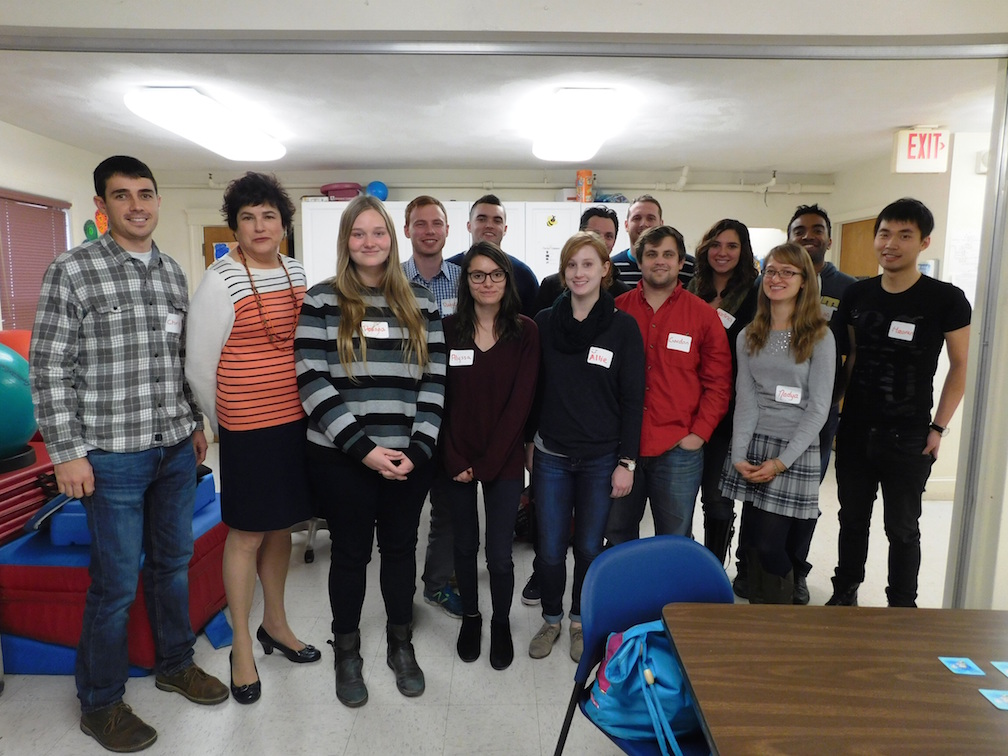eGenerationMarketing has been connecting Social Security disability claimants with attorneys for more than six years now. It was our first form of legal lead generation. You could say that SSD claims are our “bread and butter.” This year, we decided to try to give back to the community our organization most often helps. We spent Giving Tuesday (December 1st) volunteering with GWArc, a group located in Waltham, Massachusetts. GWArc is dedicated to serving people of all ages with intellectual disabilities.
GWArc is a branch of The Arc, one of the nation’s largest resources for people with developmental disabilities. GWArc helps its participants gain independence, fine motor skills, socialization, and much more. An alternative to institutions for people with disabilities, GWarc has been serving the Waltham community for 60 years.
Our team arrived Tuesday morning and was greeted by dozens of smiling faces, staff and participants alike. Most of us had never worked with people with disabilities before, so we were unsure what to expect. What we quickly realized, however, was that the people served by GWArc are kind, friendly, and funny.
Together the members of eGenerationMarketing and participants of GWArc played card games, crafted party decorations, prepared and ate lunch, and simply chatted. We learned how to bust a move to Gold Digger from Heidi, saw the best way to chop a cucumber from Charlene, and were told that some of us should have worn more deodorant by Brian.

Had GWArc not existed, these participants may not be leading such happy lives today. The staff at GWArc is superb: kind, caring, attentive, and clearly loved by the participants. Not every organization and its staff is like GWArc. Many families have to turn to prison-like institutions to take care of loved ones with intellectual disabilities. Hiring skilled nurses costs thousands of dollars per year, and many insurance policies do not cover day rehabilitation programs such as GWArc.
On top of this, the federal government spends twice as much to keep prisoners in jail than it does to support the 4.6 million Americans with intellectual disabilities. More often than not, family members are left with little to no financial help in taking care of their loved one with a disability.
This is why Social Security disability benefits are so essential for people with intellectual disabilities. They not only supply families with up to $733 from SSI benefits per month to help make ends meet, but they give people with intellectual disabilities access to health insurance through Medicaid.
Social Security disability advocates or attorneys are vitally important to people with disabilities who are trying to receive benefits. Most adults over the age of 30 do not even have a true medical diagnosis and were simply diagnosed as “mentally retarded.” The millions of adults with this diagnosis need to turn to the SSA’s Blue Book listing Section 12.05—Intellectual Disability. The SSA’s listing for an intellectual disability is overall vague, asking for Social Security disability applicants to prove that they have the “inability to follow directions” or “marked restriction of activities of daily living.”
Applicants have a much harder time proving that they are unable to work due to this lack of clarity, even if they are unable to preform activities that could earn a living wage. As a Social Security attorney or advocate, you and your expertise are these applicants’ best chance of receiving benefits. Your guidance can help them submit a perfect application, gather all available medical evidence for the SSA, or defend their claim in an ALJ hearing.
eGenerationMarketing allows its clients to screen out cases based on age or location, but we never screen leads for their disability. We firmly believe that the advocates and attorneys we work with should speak with every Social Security disability case lead they receive. Some cases may have a chance of winning, even if they don’t perfectly meet a Blue Book listing. As an attorney, you could be the lifeline keeping people with intellectual disabilities out of a mental health center, or worse.